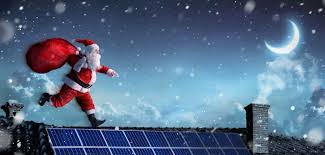How Do Solar Panels Perform in Snowy Conditions?
Learn how solar panels perform during snowy winters and why they remain an effective energy solution year-round. Discover tips for maximizing efficiency, understanding snow's impact, and why Pangea SUN Solutions ensures reliable solar energy performance even in the coldest conditions.
Pangea SUN Solutions
1/6/20252 min read


Winter can bring a lot of questions for homeowners who rely on solar panels or are considering installing them. One of the most common concerns is how solar panels perform in snow. After all, snow-covered panels might seem like they’d stop producing energy. The good news? Solar panels are more resilient and capable than many people think.
Do Solar Panels Work in Winter?
Yes, solar panels work in winter! In fact, solar panels are powered by sunlight, not heat, so cold weather itself isn’t a problem. In many cases, solar panels actually operate more efficiently in cooler temperatures. However, snow accumulation can impact their performance temporarily, as it blocks sunlight from reaching the panels.
What Happens When Snow Covers Solar Panels?
When snow builds up on solar panels, energy production may decrease until the snow is cleared. Fortunately, solar panels are designed to handle snow effectively:
Slippery Glass Surfaces: Most solar panels have a smooth, tempered glass surface that helps snow slide off as it melts or is dislodged by gravity.
Angle of Installation: Panels installed at an angle are less likely to accumulate heavy snow compared to flat surfaces.
Sunlight and Heat: Even in cold weather, solar panels absorb sunlight, which can generate enough warmth to melt snow. Once part of the panel is exposed, the melting process accelerates.
Do You Need to Clear Snow Off Your Panels?
In most cases, you don’t need to clear snow from solar panels manually. Attempting to do so can be dangerous and might damage the panels if done improperly. Instead, let nature take its course. The combination of sunlight, gravity, and the panels' own heat usually clears the snow within a day or two after a snowfall.
If energy production is critical and you’re dealing with a significant snowstorm, using specialized tools like a soft-bristled snow rake designed for solar panels can help remove snow safely. Avoid using sharp or abrasive tools that could scratch the panel surface.
How Much Energy Do Solar Panels Produce in Snowy Conditions?
While snow-covered panels might temporarily reduce energy production, the overall impact is typically minor. Here’s why:
Reflection and Brightness: Snow can reflect sunlight, increasing the amount of light that reaches solar panels and enhancing their performance once the snow clears.
Shorter Days but Higher Efficiency: Although winter days are shorter, the cooler temperatures improve panel efficiency, balancing out some of the seasonal loss in sunlight.
Seasonal Variation: Solar panel systems are designed to account for seasonal differences in energy production, ensuring they generate enough power throughout the year to meet your needs.
Tips for Maximizing Solar Panel Performance in Winter
Work with a Professional Installer: Proper installation with the right tilt and orientation ensures optimal performance, even in snowy conditions.
Monitor Your System: Use monitoring tools to track energy production and identify any significant drops that might indicate snow or other issues.
Regular Maintenance: Ensure your panels are clean and free of debris before winter to maximize efficiency.
Final Thoughts
Snowy conditions might seem like a challenge for solar panels, but they’re built to perform in all seasons. With proper installation and minimal maintenance, your solar panels will continue to generate clean, renewable energy even in the depths of winter. By harnessing the power of the sun year-round, you’re not only reducing your carbon footprint but also reaping the financial benefits of sustainable energy.
At Pangea SUN Solutions, we’re here to help you make the most of solar energy no matter the season. Got questions about solar panels in winter? Contact us to learn more about how solar power can work for you—even in the snow!
